X-HUB TOKYO, which supports overseas expansion of startups in Tokyo, held its #5 overseas expansion seminar “Open innovation required for large companies today ~ New business creation with overseas startups~” on December 9.
At this event, we provided an overview of X-HUB TOKYO for large companies and organizations that supports or collaborate with startups, and shared useful information and know-how regarding the open innovation cases of large companies and startups.
In the first part of the event, we invited Dr. Masaru Nagura, General Manager, CIC Tokyo, and Dr. Lei Liu, Director, Innovation Partnership & i2.JP, AstraZeneca K.K. to talk about the field of “Life Science & Healthcare”.
In the second part of the event, Ms. Yuko Shimada, Program Manager of Scrum Studio K.K., and Mr. Takuya Sakamoto, Representative of MOL PLUS, Inc. talked about the field of “CleanTech”. Finally, as a Mobility field, Mr. Shingo Ehara, Mobility Director of Plug and Play Japan K.K., and Mr. Akira Yanagida, Manager of Corporate Planning Office of Suzuki Motor Corporation, gave lectures and panel discussions.
Overview of the field of Life Science & Healthcare and cases of open innovation
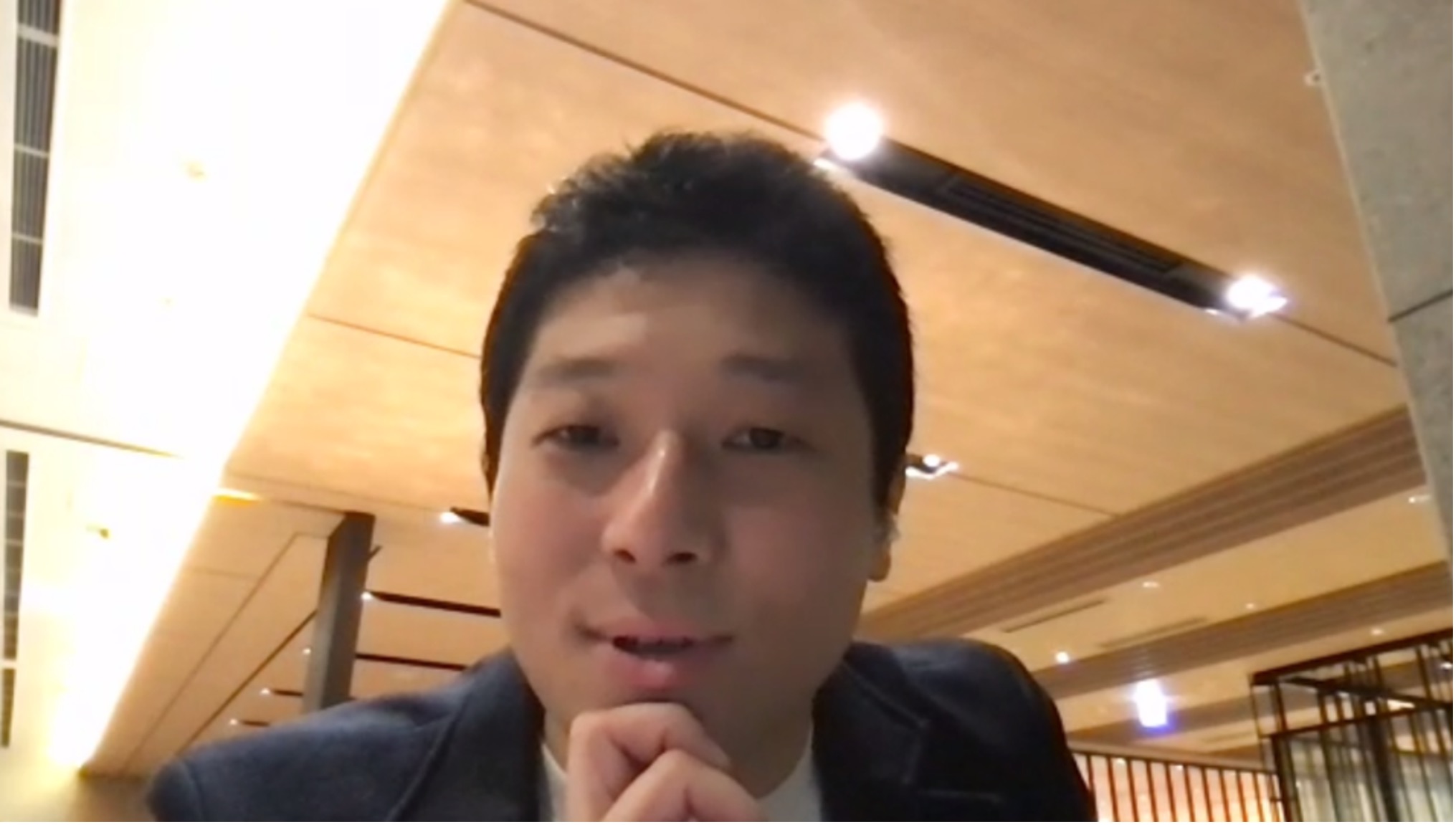 General Manager of CIC Tokyo
General Manager of CIC Tokyo
Dr. Masaru Nagura
- First, Dr. Masaru Nagura, General Manager, CIC Tokyo, and Dr. Lei Liu, Director, Innovation Partnership & i2. JP, AstraZeneca K.K., will talk about the field of Life Science & Healthcare. Please introduce yourselves and give us an overview of the field and the latest trends.
-
Dr. Nagura:We, at Cambridge Innovation Center (CIC), are urban startup clusters located in eight cities around the world. Since our founding in 1999 at Cambridge, Massachusetts, USA, we have been supporting innovators for more than 20 years. Japan-based “CIC Tokyo” is in Toranomon, Tokyo, and has one of the largest shared offices for startups in Japan, with space for over 250 companies, as well as several industry-specific communities such as healthcare, environment, and energy.
In the state of Massachusetts, where our company was founded, is home to 48 universities and research institutions. Also, the Massachusetts includes Boston, which has the world’s most advanced research and competitive edge in life sciences and drug discovery. Boston has been nominated as the number one “biotech cluster” in the U.S. by a U.S. government agency, and we can get daily updates from there.
The life science field has changed dramatically after the Covid-19 disaster. In the past, drug discovery research was led by large, well-capitalized companies, but recently we have seen remarkable results in vaccine development by startups, and the new players are playing an active role. In addition, the increase in the number of patients suffering from depression and mental illness due to the Covid-19 disaster has brought attention to mental health and digital health, and investment in these fields has been on the rise. On the other hand, due to the economic deceleration in the U.S., investment overall in the life science field is on a downward trend, but a trend of the large-scale investment remains the same as before.
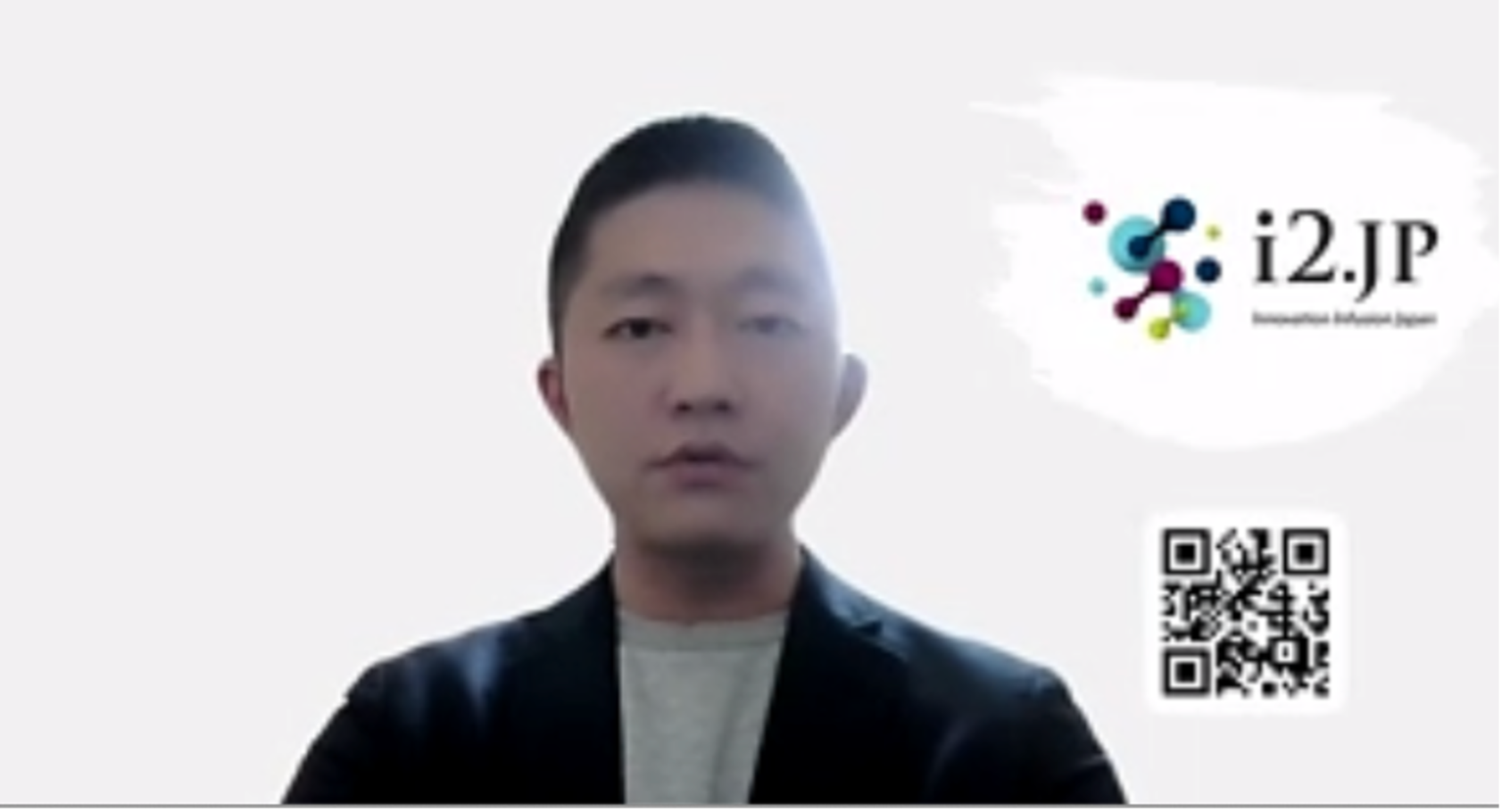 Director of AstraZeneca K.K. Innovation Partnership & i2.JP
Director of AstraZeneca K.K. Innovation Partnership & i2.JP
Dr. Lei Liu
-
Dr. Liu:We AstraZeneca have been developing “i2.JP”, an initiative to promote open innovation activities through the healthcare sector since 2020. Initially launched with seven companies and organizations, the number of partners has now grown to over 280. Not only startups, but also wide variety of other companies, such as pharmaceutical companies, financial companies, venture capital firms and medical device manufactures, and local governments.
Also, we put a great effort into overseas collaborations and have 21 offices around the world. We have strategic partnerships with overseas startup incubators, allowing us to expand into global markets and connect globally. As a result, we have created over 80 business matchings and produced more than 20 projects.
- Thank you very much. Now, Dr. Lei Liu, please tell us about the aim of open innovation and the key points when collaborating with startups.
-
Dr. Liu:It is said that the pharmaceutical industry was difficult to change drastically, as processes such as research and development were fixed to some extent. Recently, however, the industry has entered a period of change due to the progress of digitalization of society and the expansion of what is required in “healthcare”. Besides, knowledge in these new areas has not been accumulated within the pharmaceutical industry, and it is not enough for a single company to deliver innovative drugs and address a wider range of new fields. Therefore, it becomes increasingly important to connect with startups, research institutions, and other external parties to create innovation together.
To collaborate with startups, it is important to first have the number of conversations through meetups and other opportunities to share the concerns that your company has. The two important points to decide if you collaborate or cooperate with them are “whether collaboration or cooperation will really lead to a solution to the problem” and “whether scalability (expandability) is sufficient”.
Co-creation and open innovation with external parties naturally entails risks and many failures. These risks must be tolerated and explained carefully and persistently within the company. In addition, the speed of decision-making differs greatly between large companies and startups, so “bridge personnel” who can connect both sides, plays an important role. If you do not have the right person in your company, we recommend that you utilize places such as X-HUB Tokyo or ask for outside professionals’ support.
Overview of the field of CleanTech and cases of open innovation
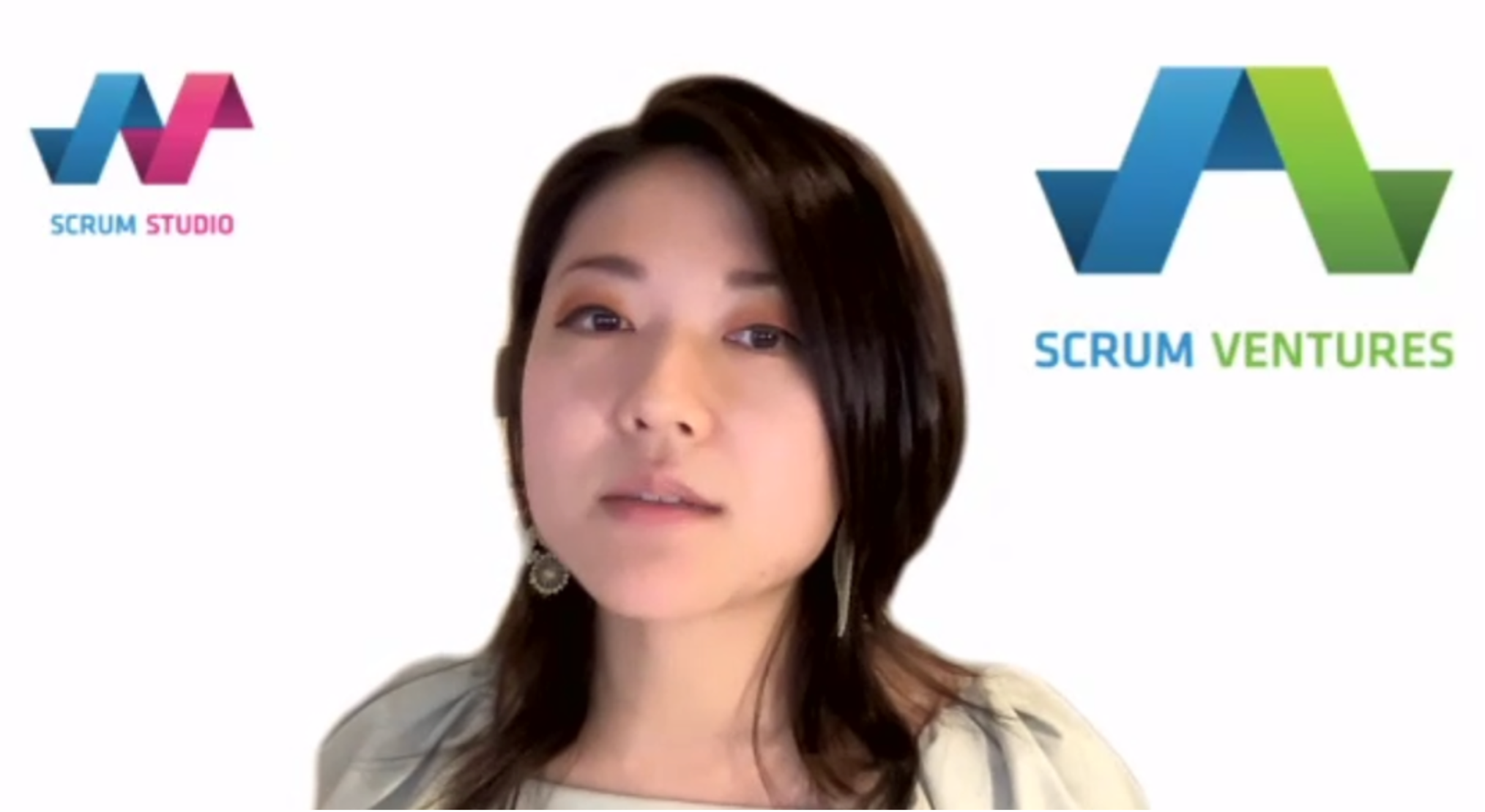 Program Manager of Scrum Studio Corporation
Program Manager of Scrum Studio Corporation
Ms. Yuko Shimada
- Next, we will discuss the CleanTech field with Ms. Yuko Shimada, Program Manager of Scrum Studio Corporation, and Mr. Takuya Sakamoto, Representative of MOL PLUS, Inc. Please introduce yourselves and give us an overview of the field and latest trends.
-
Ms. Yuko Shimada:We Scrum Studio are involved in creating new businesses between Japanese companies and global startups through open innovation. In addition to operating a “Global Accelerator Program” that creates co-creation between Japanese companies and startups from the world, we also support spin-out startups through joint ventures with Japanese companies and incubation businesses such as establishing Japanese subsidiaries of overseas startups.
In our daily exposure to the latest startup information and tech news from the U.S. and other countries, we have noticed a growing interest in the CleanTech field in recent years. The increase in extreme natural disasters worldwide and the growing economic impact of global warming and other factors are why more and more people are interested in CleanTech field.
For example, in 2021, the number of natural disasters worldwide (with losses of more than 2 trillion yen) reached its highest level. In the United States, the number of natural disasters with losses of 100 billion yen or more, tripled in the 2010s compared to the 1980s. Another reason why CleanTech field is attracting attention is that energy prices, such as natural gas and crude oil, are rising due to the increased demand for energy as the economy recovers from the Covid-19 in 2020 and the Ukraine crisis in 2022.
Under such circumstances, we invest in nine themes of CleanTech, including renewable energy, materials, and recycling. As we exchange information with startups daily, I feel there are more and more examples of open innovation, a company not only develops and sells CleanTech-related products, but also develops peripheral services related to management and forms joint development or strategic business alliances.
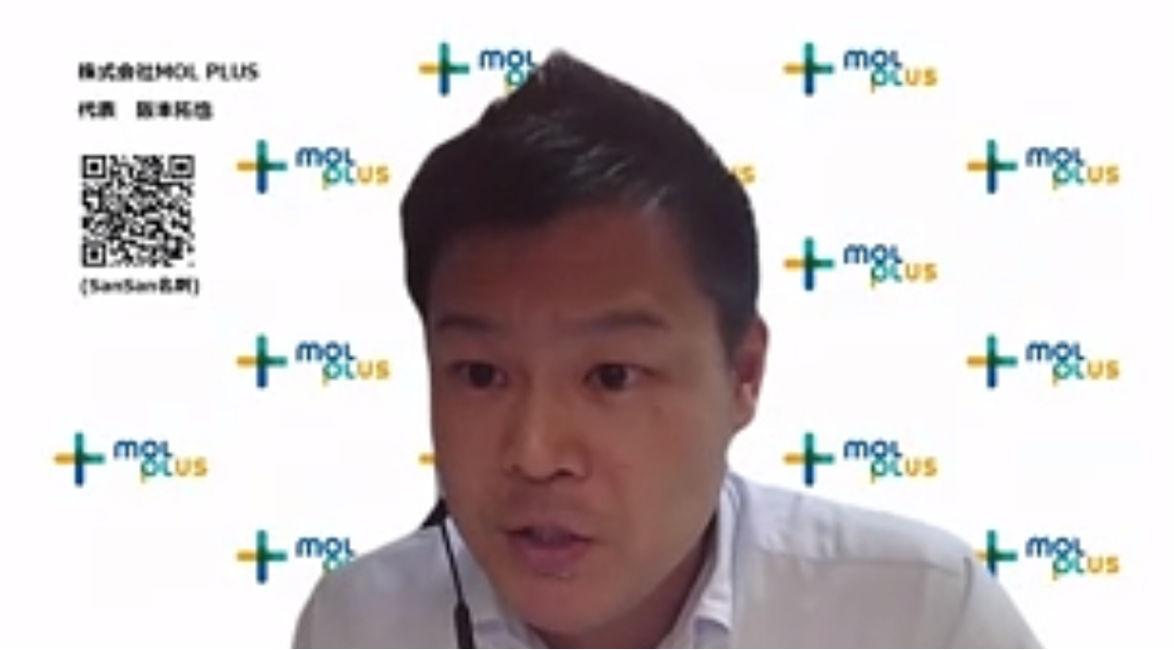 Representative MOL PLUS Co., Ltd.
Representative MOL PLUS Co., Ltd.
Mr. Takuya Sakamoto
-
Mr. Sakamoto:We Mitsui O.S.K. Lines, Ltd established a corporate venture capital (CVC), “MOL PLUS”, in 2021 to invest in startups and promote collaboration with our group companies. Our mission is to add new values to the shipping industry and society by combining the innovative ideas and technologies of startups with the resources of the Mitsui O.S.K. Lines, Ltd Group.
Specifically, we aim to create new businesses related to our core shipping and logistics business, such as digitalize and automate shipping, and develop solutions to reduce environmental negative impact. Of course, one of our roles as an investor is to support the social implementation of new technologies and products of startups. Therefore, we have invested in eight startups in Japan and overseas to support business creation in the shipping and maritime fields by making the most of the MOL Group’s resources.
- Thank you. Now, I would like to ask Mr. Sakamoto what you are aware of when collaborating with startups and creating new businesses.
-
First, when collaborating with startups for the purpose of expanding existing businesses, I try to clarify the right person in my company saying, “Mr. or Ms. ●● from our department will accompany you.” On the other hand, in the case of business creation in new areas, it is important to share the premise that “we will take a long time to bear fruit”, in our company.
If you feel that “you shouldn’t cooperate at this time”, I think it’s important to set up a meeting after a certain period to prepare for collaborations. In the CleanTech field, it takes a long time for business creation and subsequent growth. Therefore, when we accompany startups, we also try to design projects with a medium- to long-term time frame in our mind.
Against a background of decarbonization and digitalization trends, the shipping industry is in a period of drastic change. However, since shipping and logistics are big industries, it takes a lot of power and time to steer in a new direction. For myself, it is precisely because it is such a “legacy industry” that I find the real pleasure of incorporating new winds. Believing that, I would like to continue to collaborate with startups and outside parties.
Overview of the field of Mobility and cases of open innovation
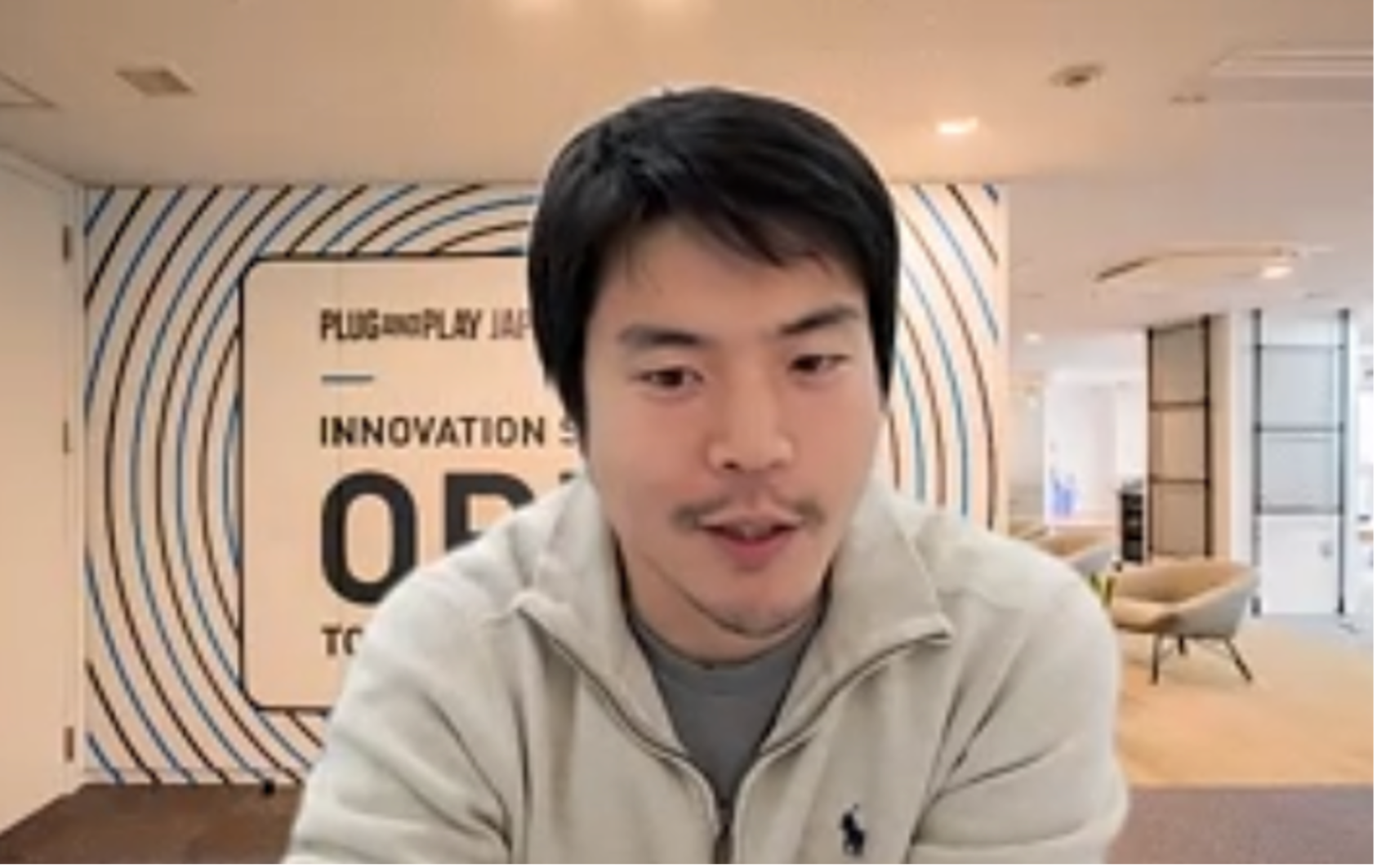 Mobility Director of Plug Play Japan
Mobility Director of Plug Play Japan
Mr. Shingo Ehara
- Finally, we will invite Mr. Shingo Ehara, Mobility Director of Plug and Play Japan Co., Ltd., and Mr. Akira Yanagida, Manager of Corporate Planning Office of Suzuki Motor Corporation. Please introduce yourselves and give us an overview of the field and latest trends.
-
Mr. Ehara:Plug and Play is one of the world’s largest accelerators/VCs from Silicon Valley in the United States and is developing an open innovation platform for large companies and startups. In addition to conducting more than 60 theme-specific acceleration programs worldwide annually, we support more than 500 corporate partners with the innovation strategies. We have also invested in over 250 startups annually.
In this context, our Mobility program aims to bring about change in the world of mobility filed and be the first step towards a new experience that is more “connected”. In the mobility field, not only the technological development of cars themselves, but also related industry such as InsurTech, which is insurance in preparation for accidents, and healthcare are expanding. We think it is important to meet other companies in the same industry but also players in different industries to build meaningful networks. By utilizing them, we support creating strategic roadmaps, innovative activities, and DX.
In addition, we have branches where the latest information and technologies of the automobile industry, including Germany, gather, so we obtain local information and the latest trends daily and inform to everyone.
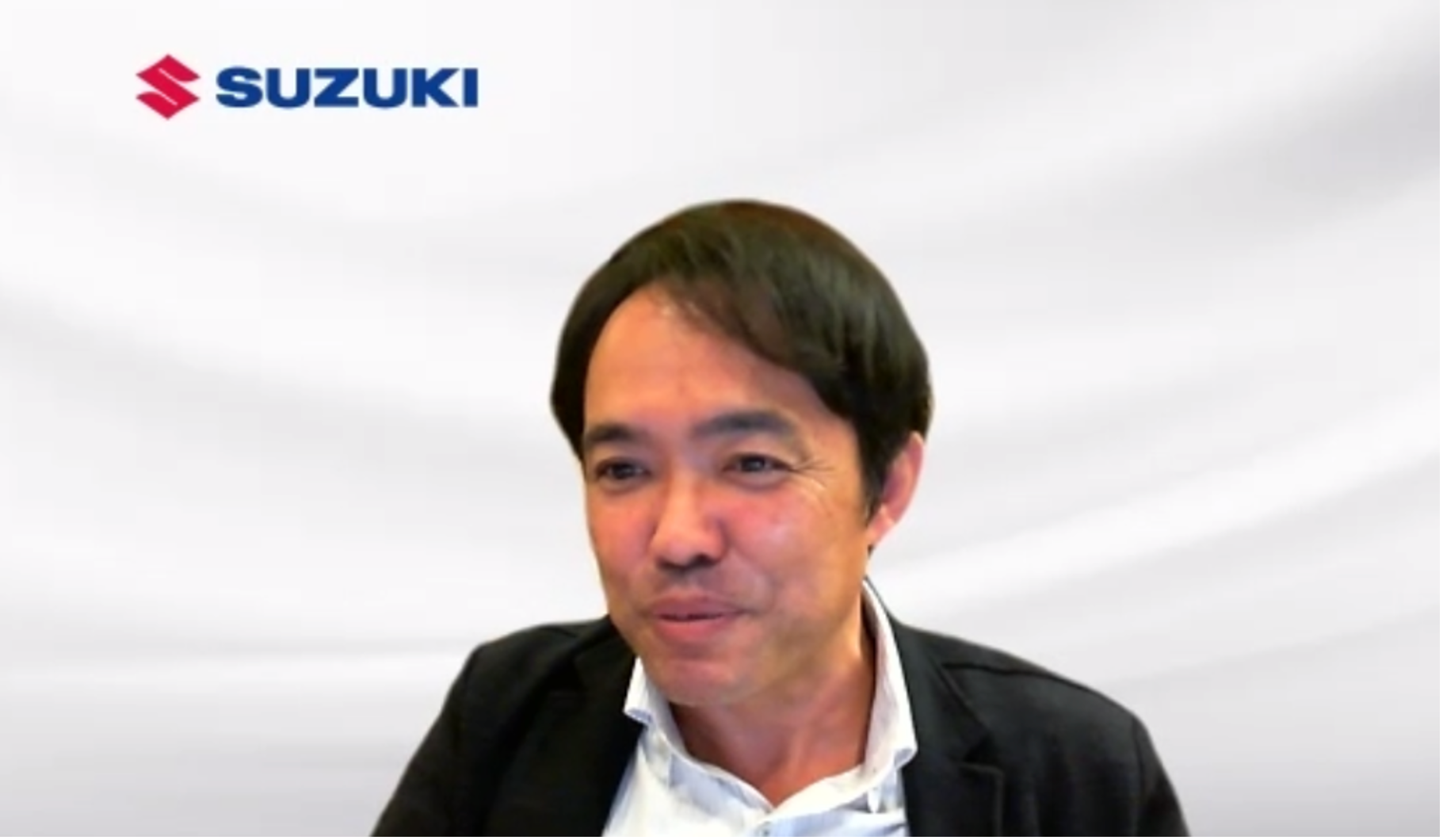 Department Manager of SUZUKI MOTOR CORPORATION Corporate Planning
Department Manager of SUZUKI MOTOR CORPORATION Corporate Planning
Mr. Akira Yanagida
-
Mr. Yanagida:Since 2016, Suzuki has established an office in Silicon Valley, United States with the aim of contributing to the development of an ecosystem that grows together with startups, solving issues faced by customers and societies, not only in Japan but also in the United States, India, and other countries.
In addition to gathering information on cutting-edge technology and startup companies, we also hold a two-week boot camp for executives to learn about entrepreneurship in Silicon Valley. To ensure that they can apply what they have learnt there after returning to Japan, we regularly hold events to evoke innovation mindsets, and we are developing human resources who can formulate long-term strategies and take actions toward Suzuki’s “next 100 years”.
The environment surrounding the automobile industry has changed dramatically over the past few years, and the industry is now in a “once-in-a-century period of change. To create values in such an era, we believe that it is important to go to the outer world and learn, rather than holding meetings at your own desk, facing documents and computers.
- Thank you very much. Now, Mr. Yanagida, please tell us about your aims for open innovation and examples of collaborations with startups.
-
The automotive industry has traditionally been considered as a difficult field to promote open innovation. That is because the automotive industry has grown through continuous improvements in performance, quality, and cost, and companies have been hesitant to disclose their knowledge to the outside world in order to remain competitive.
On the other hand, the external environment and society are changing drastically, and the way cars should be, and the needs people have for them are also changing. The next generation of vehicles will not stop at “mere transportation”. Under such circumstances, what Suzuki has considered to be common sense may no longer apply. Therefore, we are reexamining our traditional business model of “producing and selling cars,” and to rethink the definition of cars and mobility from multiple perspectives, we place importance on promoting open innovation by actively incorporating outside knowledge and expertise.
For example, one of our past examples of collaborations was a chat guide system using communication AI provided by a startup to solve problems on our four-wheeled vehicle website. The Covid-19 disaster reduced the opportunities for customers to visit our stores, so we wanted to provide easy-to-understand guidance on Suzuki’s four-wheel vehicle website for customers who are new to selecting a vehicle. To meet these needs, we implemented a communication AI to provide easy-to-understand guidance by listening to the individual preferences and circumstances of each customer, just like a customer service.
Open innovation is a very effective option in solving your company’s problems. If you find it difficult to make connections with startups, you can rely on outside professional organizations and request support to get your project moving on.
- The event provided useful information and stories about open innovation required by major companies and examples of collaboration with startups. X-HUB TOKYO will continue to create networking opportunities for overseas startups and provide information on the latest trends in open innovation in Japan and abroad.

